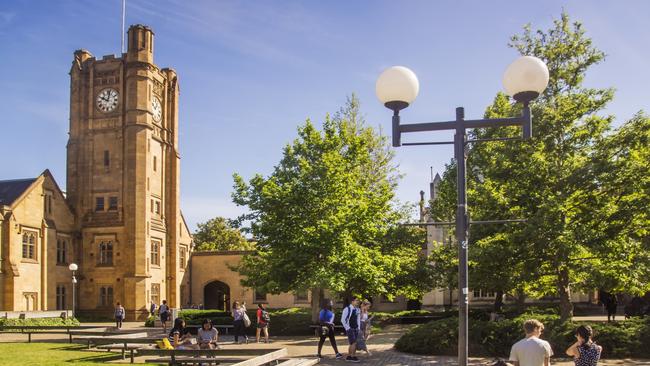ATEC is intended to protect universities from political winds
The proposed Australian Tertiary Education Commission is intended to help protect universities from the political winds of the day.

The proposed Australian Tertiary Education Commission is a linchpin of the Universities Accord which will help protect universities from the political winds of the day and ensure a balanced implementation of the Accord review’s recommendations, accord-ing to review chair Mary O’Kane.
Professor O’Kane told the Universities Australia summit in Canberra on Tuesday that the commission could serve as a “buffer body” for the university sector.
She cited Prime Minister’s Department chief Glyn Davis and Tertiary Education Quality and Standards Agency chair Peter Coaldrake – both former vice-chancellors – as having underlined the importance of such organisations taking a buffer role, between universities and the government.
Professor O’Kane said her review panel had considered how to ensure that its recommended reforms, which span a 25 year period, were resilient and said this was one of the reasons that it supported the establishment of the commission.
As envisaged by the Accord review, the commission would have wide powers including managing, at high level the efforts of universities to provide skills to the economy of the right type and quantity, and playing a central planning role for the higher education sector.
Its powers would also include allocating government funding, setting course fees, negotiating performance agreements with universities (called mission-based compacts) and monitoring the overall performance of the sector. It would also take the main research funding body, the Australian Research Council, under its wing, as well as the higher education regulator TEQSA.
Through its funding powers it will have a powerful role in establishing a new university funding system, with a brief to ensure the goal of bringing in more students poorer backgrounds, indigenous students, and students from regional and remote areas, is met.
In interview with The Australian Professor O’Kane said the commission would be about “system governance, system stewardship, and about how the system delivers for the nation and delivers for the universities and for the community”.
She said it would also link to another government agency, Jobs and Skills Australia, “to understand the funding, understand the skills needs”.
Professor O’Kane also sees the commission as playing the key role in ensuring that the proposed expansion of the higher education system goes smoothly.
She said that, through its compacts with individual universities, it would also exercise influence over the composition of the university sector, “not just teaching and research focus, but size of institutions and locations of institutions”.




To join the conversation, please log in. Don't have an account? Register
Join the conversation, you are commenting as Logout